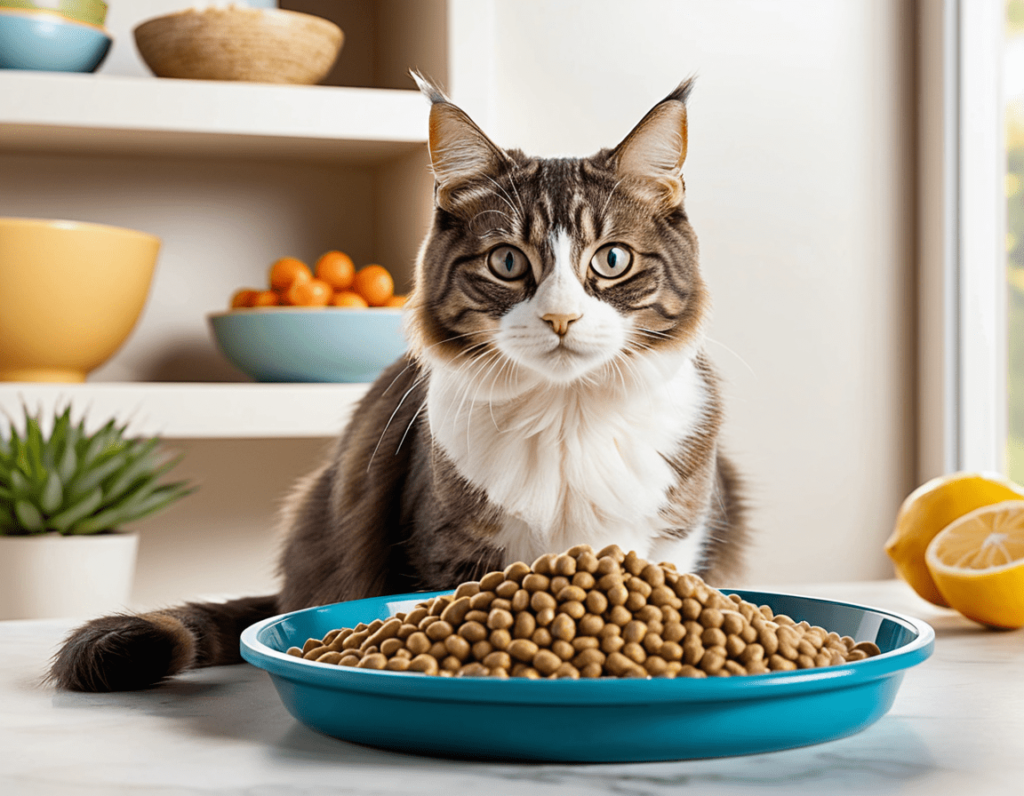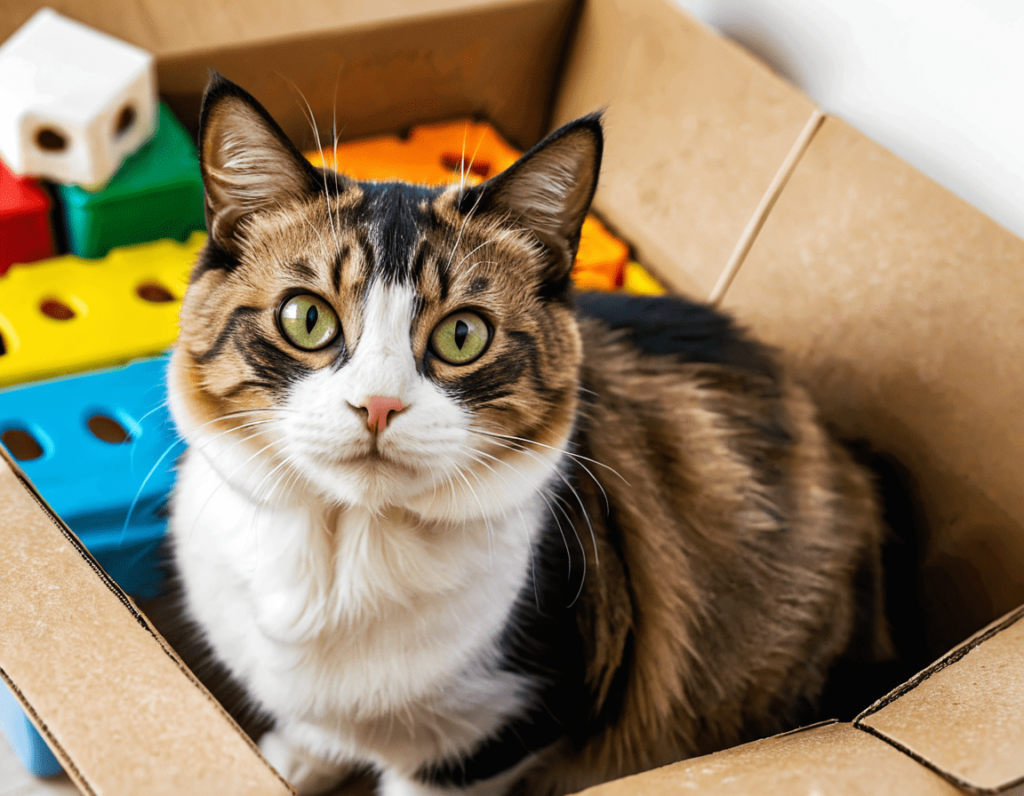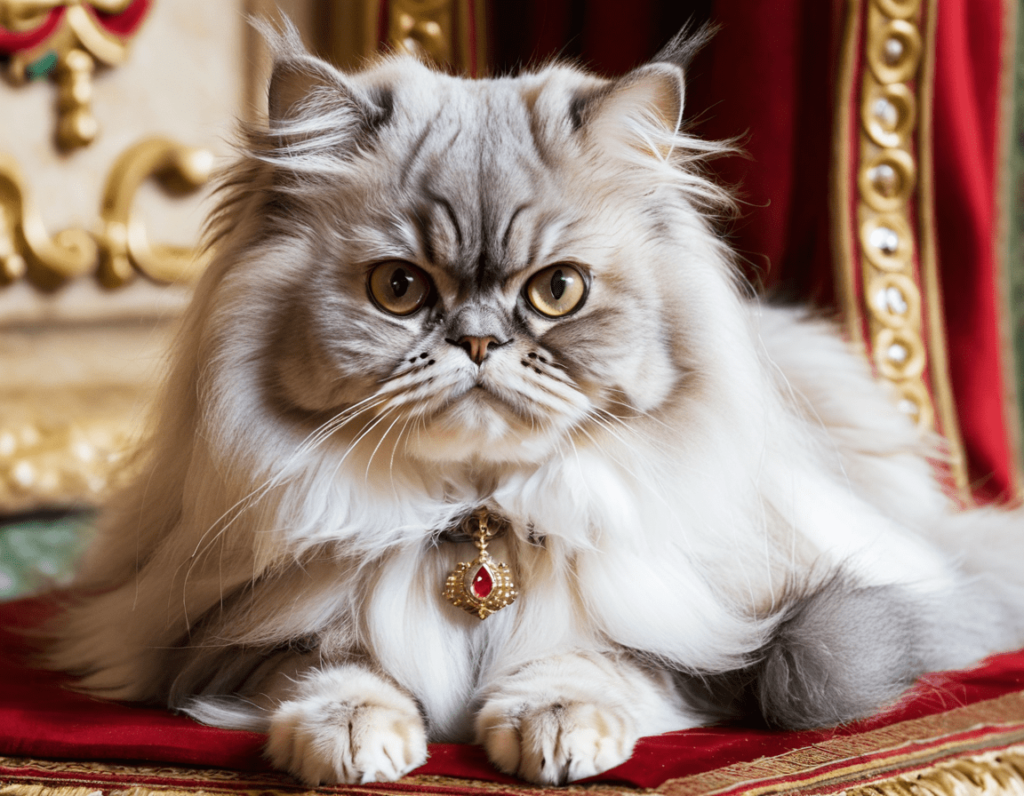
Have you ever looked at your cat and thought, “What in the world are you made of?” Well, you’re not alone! Every cat parent has those moments where they wonder about their kitty’s mysterious background—from their breed to their quirky behavior. Fortunately, with the rise of cat DNA tests, you can finally unlock the secrets of your cat’s ancestry without having to ask them directly (we’ve all tried asking our cats questions, but they’re not exactly chatty).
So, what exactly is a cat DNA test? What can it tell you about your feline friend? And is it really worth the cost? Let’s dive into the world of genetics to see how this test works and whether it’s worth testing your cat’s DNA.
What Is a Cat DNA Test?
A cat DNA test is a simple way to analyse your cat’s genetics and find out details about their breed, health risks, and even traits like coat colour or personality. These tests work similarly to the ones humans take (but, no, you won’t have to provide a cheek swab while your cat is eating tuna).
Essentially, you collect a small sample from your cat (usually a cheek swab or a blood sample), and the DNA test company analyses it in a lab. The results are usually available within a few weeks. You’ll learn about your cat’s breed composition, possible inherited health conditions, and even some surprising facts about their genetics. It’s like getting a family tree for your cat—minus the awkward holiday dinners.
Why Would You Want to Test Your Cat’s DNA?
There are plenty of reasons why you might want to get a DNA test for your cat. Some of them are practical, some are fun, and others will make you wonder how you ever lived without knowing this information.
1. Discover Your Cat’s Breed
Whether your cat is a fluffy Persian or a mysterious mix, a DNA test can reveal your cat’s breed makeup. You might be surprised to find out that your seemingly purebred kitty has some unexpected ancestors in their family tree. Maybe they’re a Maine Coon with a bit of Siamese mixed in—or maybe they’re part Sphynx, and you just didn’t know it. Either way, it’s a fun mystery to solve!
2. Health Insights and Genetic Testing
Health problems can sometimes run in the family—especially in certain breeds. By testing your cat’s DNA, you can find out if they have any predispositions to health issues like kidney disease, hip dysplasia, or heart conditions. It’s like having a preemptive strike against future health problems and knowing what to look out for. And with that knowledge, you can better manage your cat’s care, helping them stay healthy and happy for years.
3. Understanding Their Behavior
Some cat breeds are known for their distinct personalities. For example, Siamese cats are often vocal and active, while Ragdolls are known for their relaxed and affectionate nature. Testing your cat’s DNA can give you a clearer understanding of what’s driving their behavior. Is your cat’s love for cuddles coming from their Maine Coon heritage, or is it a random quirk? Who knows, but it’s fun to discover!
4. Track Their Ancestry
Let’s be honest—sometimes we just want to know about our pets’ ancestry. We do it for people, so why not for our feline friends? A cat DNA test can reveal if your cat has distant cousins across the globe or if they’re descendants of a particular breed you didn’t even know existed. It’s like getting an ancestry report for your pet!
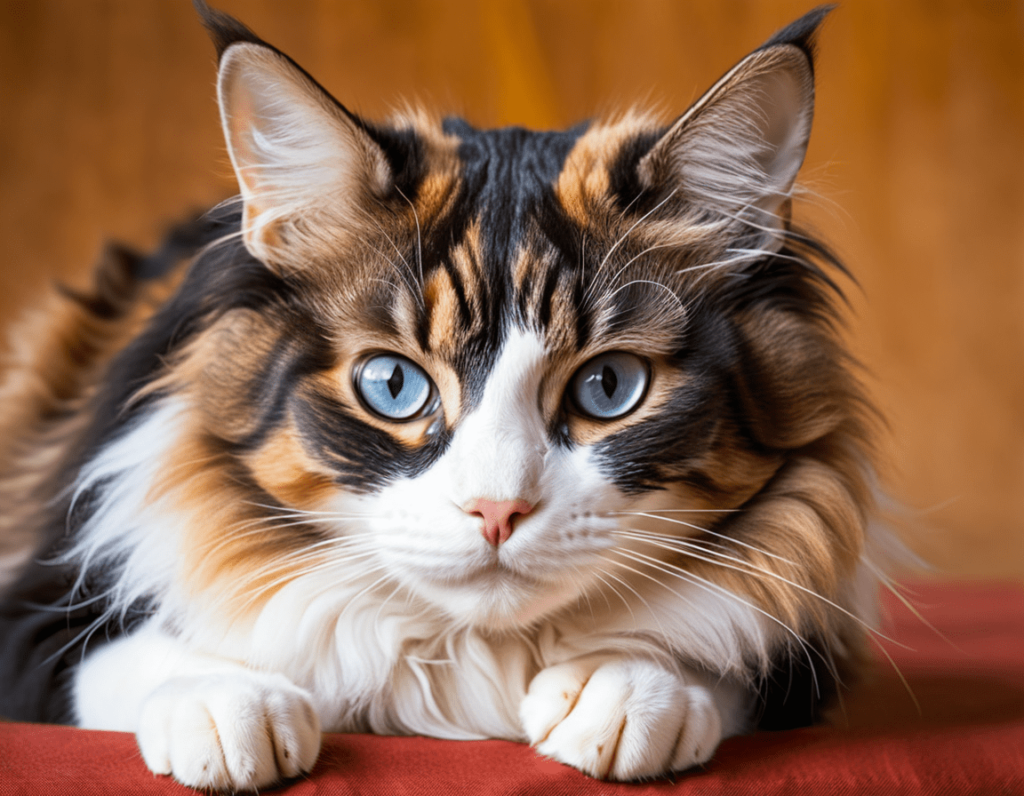
How Does a Cat DNA Test Work?
A cat DNA test is super simple and doesn’t require your cat to do anything fancy. Here’s a step-by-step rundown:
- Order the Kit: Start by ordering a DNA test kit from a reputable company. Many popular services like Wisdom Panel or Basepaws offer cat DNA tests.
- Collect the Sample: You’ll usually need to use a cheek swab to collect the DNA sample from your cat. Don’t worry—it’s painless, and your cat probably won’t even notice. Just gently rub the swab inside their cheek to collect cells.
- Send the Sample: After collecting the sample, send it off to the lab (the instructions come with the kit). Make sure to follow all the instructions closely to avoid any missteps.
- Get the Results: After a couple of weeks, you’ll receive a report with detailed information about your cat’s breed makeup, health conditions, and other traits.
How Much Does a Cat DNA Test Cost?
The price of a cat DNA test can vary depending on the service and the features you choose. Most tests will cost between $50 and $150, with more comprehensive tests (that include health screening or specific breed details) costing a bit more. It’s a small price to pay to uncover the mysteries of your cat’s genetics—and it might even save you money on future vet bills if you learn about potential health risks early on.
Is a cat DNA Test Worth it?
If you’re a curious cat parent, a DNA test can provide plenty of insight into your cat’s background and health. It can help you understand your cat’s behaviour and provide peace of mind when it comes to their health. However, if you’re just looking for a quick answer to “what breed is my cat?” without delving into health info or ancestry, a DNA test might not be essential.
But let’s face it, who doesn’t love knowing more about their furry friend’s family tree? Plus, it makes for a great conversation starter at parties when you can say, “Did you know my cat is part Siberian Forest?”
Funny Cat DNA Test Story
A friend of mine once did a DNA test for her cat, Mr. Buttons, just to find out if he was part Maine Coon—since he’s so fluffy. Imagine her surprise when the results showed he was part Bengal, which explained his love of leaping onto the highest surfaces in the house. Turns out, Mr. Buttons is basically a wild cat in disguise. So much for being “just fluffy”!
What Can You Learn from a Cat DNA Test?
So, you’re thinking about getting a cat DNA test, but what exactly will it tell you? Well, buckle up, because the results can be pretty eye-opening—and sometimes even hilarious. Here’s a rundown of what you might discover:
1. Your Cat’s Breed Composition
As mentioned, one of the most exciting things a cat DNA test can reveal is your kitty’s breed makeup. You may have thought you adopted a plain ol’ tabby, only to find out that your cat has a little Sphynx, Bengal, or even Maine Coon running through their veins. It’s like a genetic treasure hunt! If you’ve ever caught yourself thinking, “What exactly are you, fluffy one?” this test will give you the answer.
2. Health Risks and Genetic Conditions
You know that one uncle who has a family history of high blood pressure? Well, your cat might have some similar health risks tied to their genetic lineage. Many DNA tests will screen for common genetic diseases in cats, such as hypertrophic cardiomyopathy (heart disease) or polycystic kidney disease. Knowing these risks early means you can catch potential health issues before they become a big problem—kind of like being prepared for a catastrophe.
3. Coat and Personality Traits
Some tests even give you insights into your cat’s physical traits, like coat texture, color patterns, and even potential personality traits. For example, certain breeds are known for being active or talkative, while others are more chilled out. Maybe your cat’s incessant need to jump on countertops is thanks to their Bengal bloodline, or maybe they’re just secretly plotting to take over the world. Either way, you’ll have a better understanding of why they do what they do!
4. Your Cat’s Family Tree
Believe it or not, some cat DNA tests will give you a family tree of your feline companion. While it won’t tell you if your cat’s great-great-grandmother was an Egyptian Mau, it will give you a good sense of your cat’s ancestry and whether their lineage traces back to certain breeds. It’s a fun, informative way to connect the dots between your pet and their distant relatives—especially if you ever get curious about their royal connections. Who knows? Your cat could be royalty in the feline world!
5. Surprising Results
Sometimes, the test results can surprise you in unexpected ways. You might find out your long-haired tabby is actually part Siamese or that your short-haired domestic has a hint of Persian in their lineage. One cat DNA test revealed that a “typical” tabby actually had DNA traces from a wild African wildcat, making them part of an ancient breed. You never know—your cat might just be a genetic celebrity.
The Fun Side of Cat DNA Testing
While learning about your cat’s health and breed is great, there’s a fun side to the cat DNA test too. It can feel like discovering a hidden secret identity. One moment your cat is just an ordinary furball, and the next moment they’re revealed as a high-class breed with ancient roots. Imagine casually telling friends at a party, “Oh, by the way, my cat is part Siberian Forest. Yeah, just discovered it through a DNA test.” Instant conversation starter, right?
Also, the idea of knowing that Mr. Whiskers might be part Siamese or Abyssinian just adds an element of fun to their already quirky personality. They may act like royalty one minute, running through the house at breakneck speeds, and the next, they’ll flop over on your lap for a cuddle session. But now you know why.
Are Cat DNA tests accurate?
Cat DNA tests are generally reliable, but like anything, they’re not 100% foolproof. They can give you a solid picture of your cat’s breed composition, health risks, and physical traits, but some very rare breeds might be harder to identify, and some traits may not show up in the DNA. It’s also important to remember that the test results are based on available genetic data. If the breed isn’t well represented in the company’s database, the test might not identify it correctly.
But don’t worry—most tests are very accurate for common breeds and health conditions, and they give you a clearer picture of your cat’s genetic background than a simple guess ever could.
The Bottom Line: Is It Worth the Price?
Whether you’re just curious about your cat’s breed, want to be prepared for any potential health issues, or you simply enjoy a good cat mystery, a DNA test for your cat is a fun and informative way to learn more about your furry friend. It gives you a deeper understanding of their personality, health, and breed, all while helping you ensure they live their healthiest life possible. Plus, it’s a great conversation starter at your next cat-loving gathering.
So, if you’ve ever wondered if your cat is secretly part Siberian tiger, now’s your chance to find out!
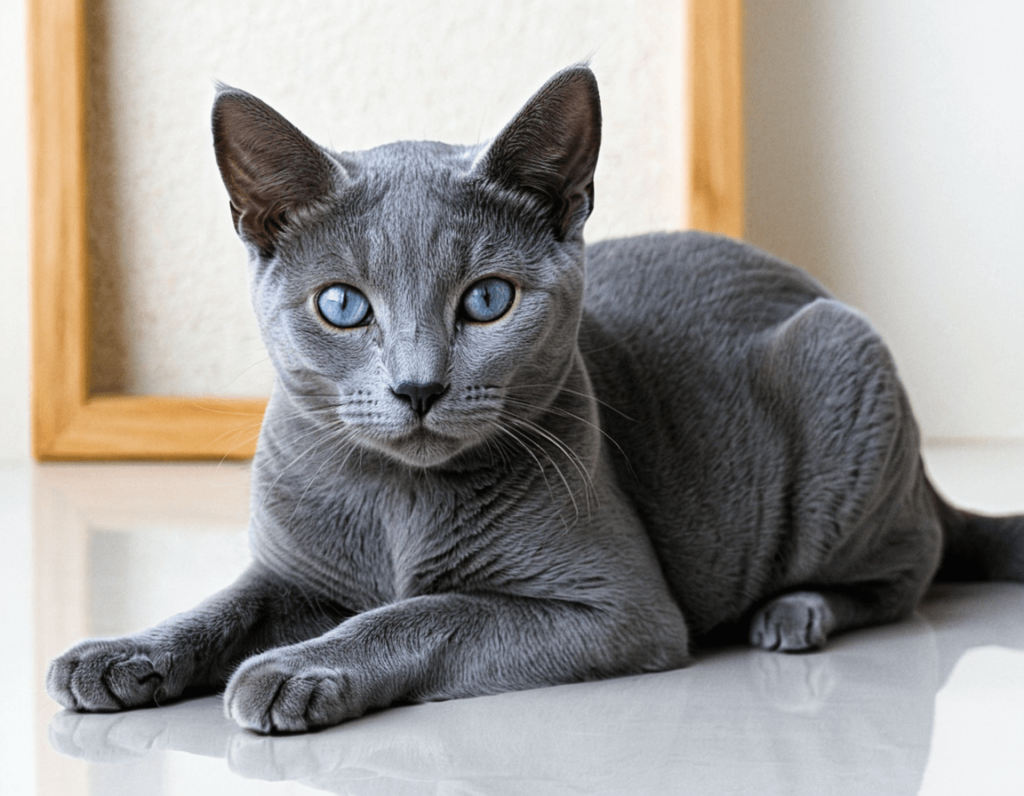
About Cat DNA Test FAQs :
Here are some frequently asked questions about cat DNA tests to help you decide if this fun and informative test is right for you and your feline friend!
1. What is a cat DNA test?
Answer: A cat DNA test analyses your cat’s genetic makeup. It can tell you about their breed composition, potential health risks, physical traits, and even behaviour tendencies. All you need to do is collect a small sample of your cat’s DNA (usually a cheek swab) and send it to a lab for analysis. The results will reveal a lot about your cat’s background.
2. How accurate is a cat DNA test?
Answer: Cat DNA tests are generally accurate, but like all genetic tests, they are not 100% foolproof. The accuracy depends on the test you choose and the database used for comparison. For common breeds and health traits, the results are usually reliable. However, rare breeds may not be as well-represented in the database, which could affect results.
3. What can I learn from a cat DNA test?
Answer: A DNA test can give you a wealth of information about your cat, including:
- Breed Composition: What breeds make up your cat’s genetic background?
- Health Risks: Genetic predispositions to conditions like heart disease or kidney problems.
- Physical Traits: insights into coat colour, texture, and potential personality traits.
- Ancestry: Your cat’s distant relatives and ancestry details.
4. How do I collect a sample for the DNA test?
Answer: Most cat DNA test kits come with a cheek swab. Gently rub the swab inside your cat’s cheek to collect cells. Some kits may also offer the option of collecting a blood sample, but cheek swabs are the most common and easiest method.
5. How long does it take to get the results?
Answer: After you send the sample to the testing company, it typically takes around 2 to 4 weeks to receive your cat’s DNA results. You’ll usually get a detailed report online, which can be accessed through the company’s website.
6. How much does a cat DNA test cost?
Answer: The cost of a cat DNA test typically ranges between $50 and $150, depending on the company and the type of test you choose. More comprehensive tests that include health screening or breed analysis can be on the higher end of the price range.
7. Are cat DNA tests worth the money?
Answer: If you’re curious about your cat’s breed, want to learn about their health risks, or simply want to know more about your cat’s unique personality, a DNA test can be very worthwhile. It’s a fun way to better understand your cat, and the health information can help you make informed decisions about their care.
8. Can a DNA test tell me if my cat is part wildcat?
Answer: Yes, some DNA tests can give you insight into whether your cat has any wildcat DNA in their ancestry, such as from the African wildcat or other exotic breeds. While they’re not likely to be related to lions or tigers, you may discover they have distant wildcat relatives.
9. Can I test my cat’s DNA at home?
Answer: While you can collect the sample at home using a kit, you still need to send the sample to a lab for testing. The company will analyse the sample and provide you with the results online.
10. Does a DNA test guarantee my cat’s health?
Answer: While a DNA test can give you valuable information about potential health risks, it’s important to remember that genetic testing doesn’t guarantee your cat will develop any conditions. It just gives you a heads-up about things to look out for in the future. Always work with your vet to monitor your cat’s health regularly.
11. Can a DNA test help with behaviour problems?
Answer: A DNA test can offer insights into your cat’s breed, and since certain breeds tend to have specific behaviours, it can give you a clue as to why your cat is hyperactive, shy, or even extra cuddly. However, behaviour problems can also stem from environment and training, so it’s a good idea to combine your cat’s breed info with other strategies for addressing behaviour.
12. What’s the difference between Wisdom Panel and Basepaws DNA tests?
Answer: Both Wisdom Panel and Basepaws are popular choices for cat DNA testing. Wisdom Panel is known for its reliable breed identification and health screening options, while Basepaws is particularly focused on genetic health testing and ancestry. The choice depends on what kind of information you want from the test—breed and ancestry, or health screening and genetic traits.
13. Are DNA tests safe for my cat?
Answer: Yes! Cat DNA tests are completely safe, and there’s no risk to your cat’s health. The most common collection method, a cheek swab, is painless, and your cat will hardly notice it happening.

